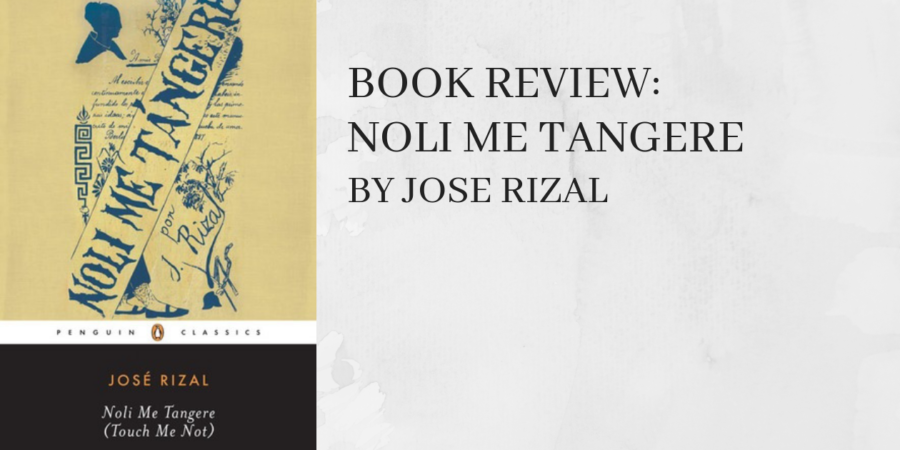I’ve read another book for the SEA Reading Challenge! I actually heard about this a while back but was a bit intimidated to pick it up because it’s supposed to be immensely important in the world of Filipino literature. So bear in mind that I’m writing this as an ordinary person who’s just trying to read more from the region she’s in (this is not where you’d find a lot of academic analysis).
Noli Me Tangere, which means “Touch Me Not” in Latin, follows Crisóstomo Ibarra, who has returned to the Philippines from his years abroad in Europe. Sadly, he finds that his father has died under the hands of the cruel Father Damaso. Still, Ibarra is determined not to take his revenge, instead focusing his energies on building a school and his fiancée, the beautiful María Clara. Soon, however, he finds that someone is still after him and they do not want him to succeed.
At the same time, we’re introduced to Sisa, a poor peasant woman and her two sons. When they disappear, she goes mad.
It took me a pretty long time (and the help of Wikipedia) to understand what was going on, but once I finished reading it, I realised that it was a powerful indictment of corrupt clergy and an ‘upper class’ who were only pre-occupied with their self-interest. Many of the upper-class are Spaniards, but some are Pinoys who manage to think of themselves as ‘European’ while stereotyping their countrymen as lazy natives. They are equally complicit in the system of oppression as the Spaniards from Europe.
What I enjoyed about this book was the use of humour. The story is pretty depressing since it’s basically how Ibarra finds his father dead and then bad thing after bad thing happen, so the use of humour helped to lighten it while showing just how ridiculous things were. For example, the book starts with news of a party and the news of it is described as “a jolt of electricity among the parasites, spongers, and freeloaders that God, in his infinite goodness, has so lovingly multiplied in Manila.” In another example later in the book, a Filipino woman who is past her prime because she refused every single suitor on account of their race is described as “no longer passable, she was just past.” That is an apt introduction to a woman who goes to extreme lengths to imitate what she thinks is the European ideal.
That said, the book does have a lot of long speeches and digressions, a little like the ones in The Zenith. While they weren’t as confusing as the ones in The Zenith (and some were pretty insightful and would have made great essays to read), they were enough that the pacing of the book was spoiled for me, and it was far too easy to miss key plot points in the story. Because of this, I spent a lot of time being confused and having to refer to Wikipedia to make sure I was aware of what happened.
Overall, this was pretty interesting. It’s not one of my usual reads but it was worthwhile spending some time on this. I don’t think I’ll re-read it or continue with the sequel, but if you’re interested in reading Philippine literature or are studying Phillipino history, I’d recommend this.
